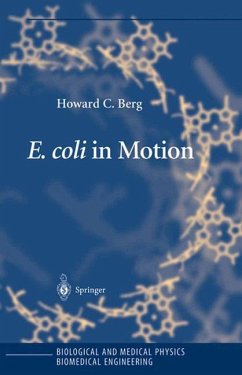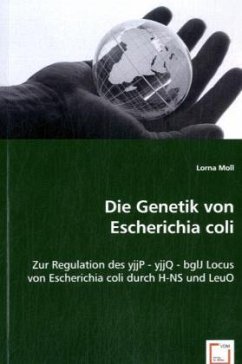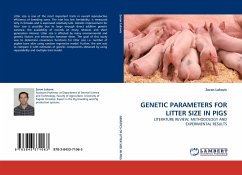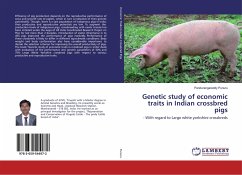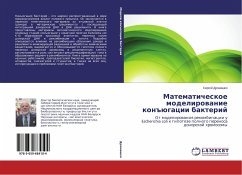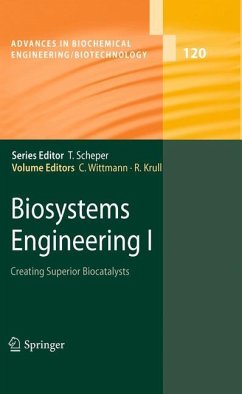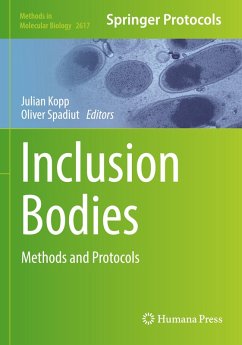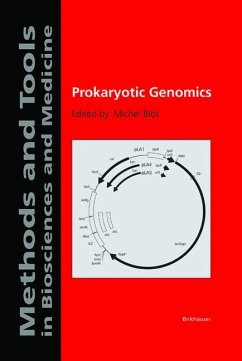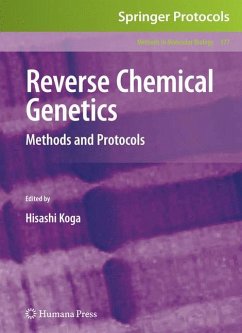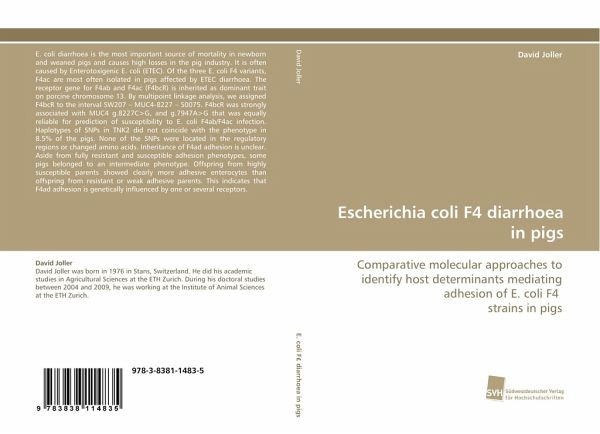
Escherichia coli F4 diarrhoea in pigs
Comparative molecular approaches to identify host determinants mediating adhesion of E. coli F4 strains in pigs
Versandkostenfrei!
Versandfertig in 6-10 Tagen
46,99 €
inkl. MwSt.

PAYBACK Punkte
23 °P sammeln!
E. coli diarrhoea is the most important source of mortality in newborn and weaned pigs and causes high losses in the pig industry. It is often caused by Enterotoxigenic E. coli (ETEC). Of the three E. coli F4 variants, F4ac are most often isolated in pigs affected by ETEC diarrhoea. The receptor gene for F4ab and F4ac (F4bcR) is inherited as dominant trait on porcine chromosome 13. By multipoint linkage analysis, we assigned F4bcR to the interval SW207 - MUC4-8227 - S0075. F4bcR was strongly associated with MUC4 g.8227CG, and g.7947AG that was equally reliable for prediction of susceptibility ...
E. coli diarrhoea is the most important source of mortality in newborn and weaned pigs and causes high losses in the pig industry. It is often caused by Enterotoxigenic E. coli (ETEC). Of the three E. coli F4 variants, F4ac are most often isolated in pigs affected by ETEC diarrhoea. The receptor gene for F4ab and F4ac (F4bcR) is inherited as dominant trait on porcine chromosome 13. By multipoint linkage analysis, we assigned F4bcR to the interval SW207 - MUC4-8227 - S0075. F4bcR was strongly associated with MUC4 g.8227CG, and g.7947AG that was equally reliable for prediction of susceptibility to E. coli F4ab/F4ac infection. Haplotypes of SNPs in TNK2 did not coincide with the phenotype in 8.5% of the pigs. None of the SNPs were located in the regulatory regions or changed amino acids. Inheritance of F4ad adhesion is unclear. Aside from fully resistant and susceptible adhesion phenotypes, some pigs belonged to an intermediate phenotype. Offspring from highly susceptible parents showed clearly more adhesive enterocytes than offspring from resistant or weak adhesive parents. This indicates that F4ad adhesion is genetically influenced by one or several receptors.



